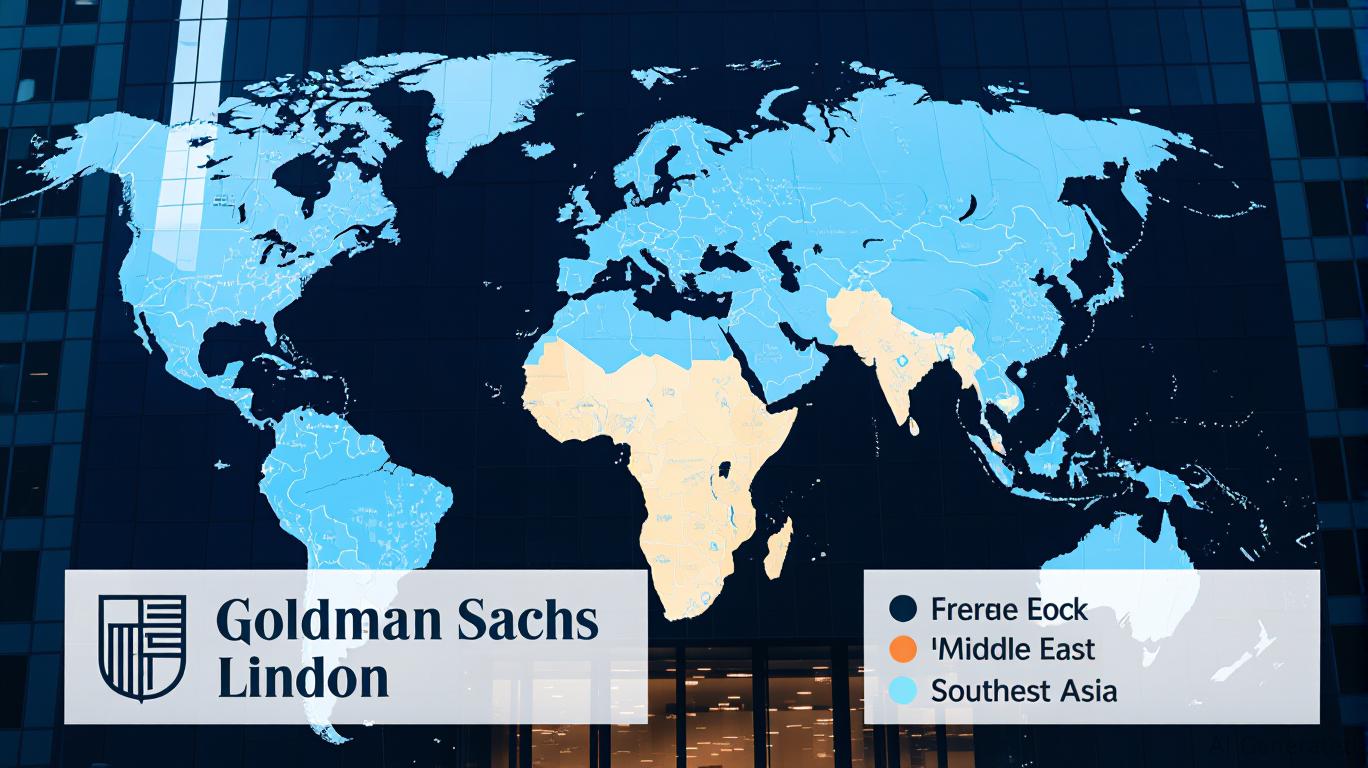The global economy remains a minefield of geopolitical tensions, post-pandemic instability, and the lingering fallout of Brexit. In this volatile landscape, financial institutions are under pressure to navigate risks while advising clients on opportunities. Goldman Sachs’ recent appointment of Rishi Sunak as a Senior Advisor marks a bold strategic move—one that positions the firm to capitalize on its blend of political acumen and financial expertise. For investors, this hire underscores the value of firms with robust advisory networks in an era where geopolitical and macroeconomic dynamics define market outcomes.
The Rishi Sunak Advantage: A Unique Confluence of Expertise
Sunak’s career is a rare intersection of high-stakes politics and Wall Street experience. Before entering politics in 2015, he spent four years at Goldman Sachs as an analyst, working in the firm’s London office. Decades later, his return comes at a critical juncture. As the UK’s Prime Minister (2022–2024), Sunak oversaw economic stabilization during the cost-of-living crisis, managed Brexit’s aftermath, and navigated Ukraine’s war—a conflict with ripple effects across energy markets and global supply chains. His tenure as Chancellor of the Exchequer (2019–2022) further solidified his understanding of fiscal policy, including stimulus packages and austerity measures.
But Sunak’s value transcends his political résumé. His pre-political career at Goldman Sachs, TCI, and Theleme Partners—where he co-founded an investment firm—gives him insider knowledge of global financial markets. This dual lens allows him to advise clients on both the macroeconomic trends shaping economies and the geopolitical events disrupting trade, investment, and capital flows.

Why Geopolitical Advisory Networks Matter Now
The stakes for firms like Goldman Sachs are clear. Post-Brexit trade disputes, Russia’s invasion of Ukraine, and China’s economic shifts have created a world where geopolitical risk is a daily concern for investors. Clients—from multinational corporations to sovereign wealth funds—need advisors who can parse the interplay between politics and markets.
Sunak’s expertise in Brexit negotiations is particularly salient. As Chancellor, he helped steer the UK through its exit from the EU, a process that reshaped trade agreements, regulatory frameworks, and investor confidence. Today, the UK’s post-Brexit trade deals (e.g., with the US and Australia) and its evolving relationship with the EU remain critical factors for businesses. Sunak’s insight into these dynamics could help Goldman Sachs anticipate regulatory changes, trade barriers, or diplomatic shifts that impact client portfolios.
Meanwhile, his role in supporting Ukraine’s defense and coordinating international sanctions against Russia positions him to advise on energy security, commodity price volatility, and the geopolitical calculus behind global energy investments.
Data Points: Goldman Sachs’ Performance in Volatile Markets
Goldman Sachs has historically thrived in turbulent environments, leveraging its advisory strength. Consider its performance during the 2022–2023 market downturn, when its stock outperformed peers by focusing on fee-based advisory services rather than speculative trading.
Sunak’s hire amplifies this advantage. Clients seeking to hedge against geopolitical risk will likely prioritize firms with access to ex-politicians who understand both policymaking and market mechanisms. This could drive demand for Goldman’s advisory services, bolstering its fee-based revenue—a key metric for long-term stability.
Investment Implications: Betting on Advisory Strength
For investors, the message is clear: firms with deep advisory networks—especially those bridging politics and finance—are better positioned to navigate today’s volatile markets. Goldman Sachs’ strategic hire of Sunak signals confidence in its ability to add value in three areas:
Geopolitical Risk Mitigation: Sunak’s insights into post-Brexit trade, Ukraine’s war, and global energy dynamics can help clients avoid pitfalls tied to regulatory shifts or sanctions. Macroeconomic Forecasting: His blend of political and financial experience equips Goldman to advise on fiscal policies, inflation trends, and central bank actions in major economies. Cultural and Talent Leadership: Sunak’s role in engaging employees reflects Goldman’s focus on cultivating a workforce capable of addressing complex global challenges—a key driver of long-term growth. Final Analysis: A Call to Prioritize Advisory Resilience
In an era where geopolitical and macroeconomic risks dominate headlines, investors should prioritize firms that invest in robust advisory networks. Goldman Sachs’ move to bring Sunak aboard—coupled with its track record of outperforming peers during crises—suggests it is well-equipped to serve clients in turbulent times.
For those seeking exposure to financial institutions with strategic foresight, consider:
– Goldman Sachs (GS): A direct play on its advisory strengths and Sunak’s expertise.
– BlackRock (BLK): Leverages data-driven macroeconomic insights, though lacks Sunak’s geopolitical depth.
– Lazard (LAZ): A smaller firm with deep M&A and restructuring expertise, but less scale in global geopolitical advisory.
While no firm can fully insulate clients from risk, those with advisors like Sunak—bridging politics and markets—are likely to offer the best guidance for thriving in today’s volatile landscape.
Investment decisions should always consider personal risk tolerance and consult with a financial advisor. Past performance does not guarantee future results.